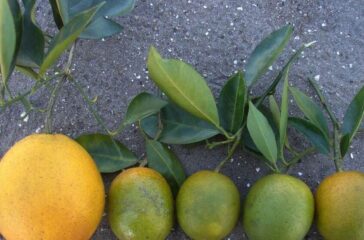Despite ban, EPA grants ’emergency’ approval for bee-killing insecticide for 10th straight year
By Johnathan Hettinger
US regulators have approved the emergency use of clothianidin on Florida citrus trees for the tenth straight year, once again allowing farmers to use the insecticide despite its known risk to endangered species and pollinators critical to the health of the food supply.
Since 2015, the Environmental Protection Agency (EPA) has had a moratorium on new uses of neonicotinoid insecticides, including clothianidin, because of evidence that the class of pesticides is linked to pollinator decline. Neonics have been shown to be particularly harmful to bees, which help pollinate important crops, such as vegetables, nuts, cotton and more.
In a 2023 analysis, the EPA found that clothianidin and other neonics are driving hundreds of species protected under the Endangered Species Act toward extinction. Neonics are banned in Europe, and the EU has proposed essentially banning clothianidin on crops imported into the EU.
Despite the concerns, the EPA has continually allowed farmers in Florida to drench the soil surrounding citrus trees with clothianidin to help fight an insect called Asian citrus psyllid, which spreads a disease the industry calls “citrus greening.” The EPA renewed that exemption last week. Florida’s citrus production has seen a steep decline over the last 20 years due largely to the dreaded disease.
“It is the no. 1 issue in citrus, probably in the world,” said Lauren Diepenbrock, an assistant professor & citrus entomology extension specialist at the University of Florida. In the past 20 years, Florida citrus production declined from 300 million boxes in 2003-04 to under 20 million boxes in 2022-23.
 EWG
EWG